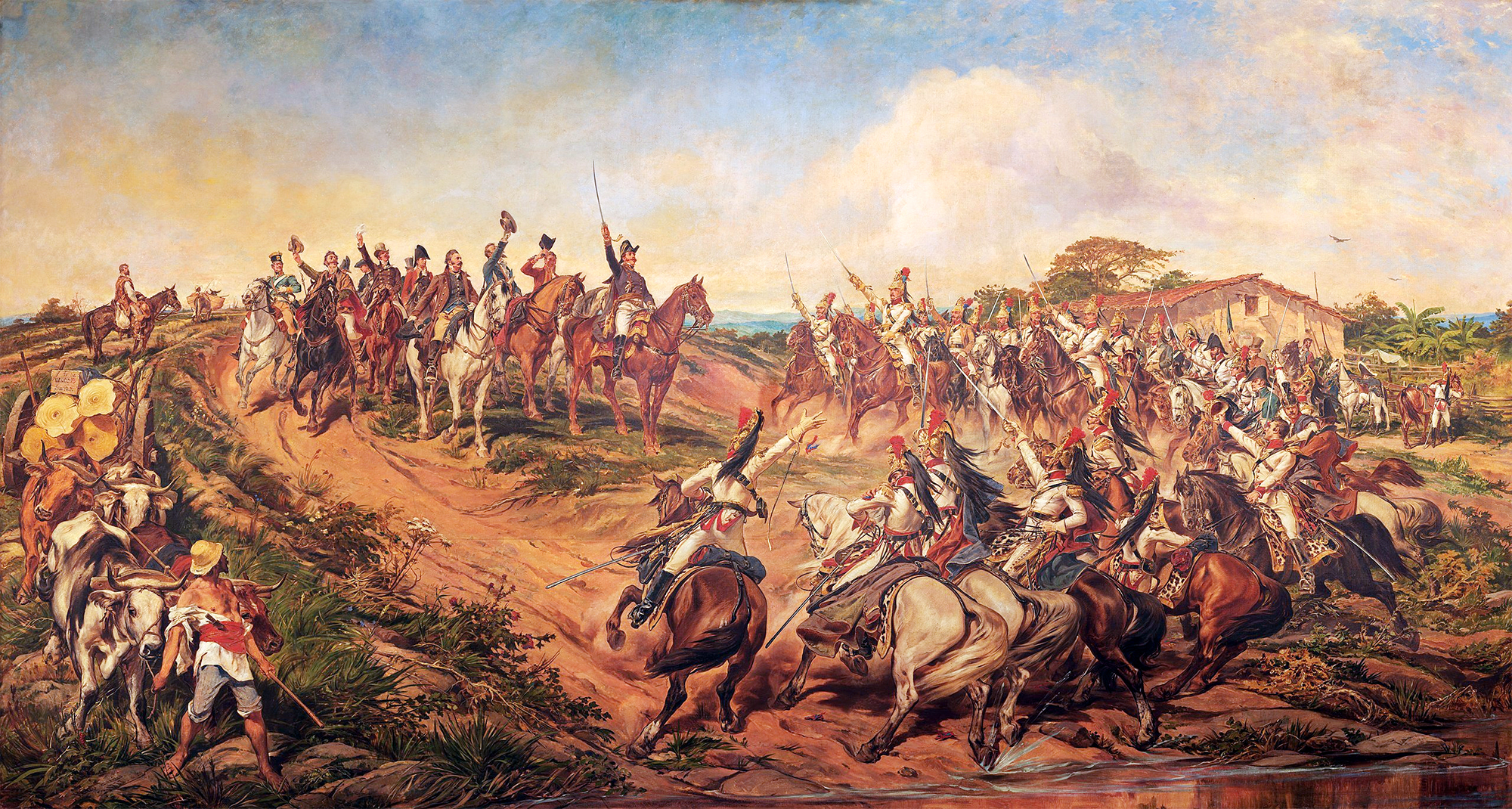
São Paulo, 1822ko irailaren 7a. Hiriaren kanpoaldean, Ipiranga ibaiaren ertzean, Petri Bragançakoa Portugalgo printzeak Brasilen independentzia aldarrikatu zuen, “Independência ou morte” oihukatuz.

Hasieratik, Hego Amerikako gainerako herrialdeen independentzia prozesuarekin alderatu zuten Brasilgoa; han, prozesu bateratu, baketsu eta hitzartua izan omen zuten, monarkia konstituzionalera eraman zituena. Auzoko herrialdeetan, aldiz, gerra, kaosa eta errepublikazaletasun anarkikoa besterik ez zuten ikusten. Baina historiografiak geroz eta nabarmenago jarri ditu zalantzan prozesuaren ezaugarri horiek.
Metropoliarekiko independentzia politikoa zalantzan jartzeko modukoa da aldarriaren protagonistari begiratu hutsarekin. Petri Brasilgo lehen enperadore izendatuko zuten urte horretan bertan eta, tarte batean, Portugalgo errege ere izango zen –alaban abdikatu zuen arte, praktikan agintean jarraitu zuen arren–. Beraz, Petri IV.a Portugalgoa eta I.a Brasilgoa izan zen batera.
Ekonomikoki ere europarrekiko menpekotasuna ezin izan zuten astindu. Bragançatarrak –eta, ondorioz, brasildarrak– zorretan zeuden Britainia Handiarekin, diplomaziaren bidez prozesuan laguntza eskaini zielako. Britainiarrek lehentasunezko baldintzak eta monopolioak lortu edota berretsiko zituzten, brasildarren merkataritza interesen kaltetan.
Portugali ez zion inolako baldintzarik ezarri independentzia hitzarmenak; aldiz, brasildarrek, konkistatuek, alegia, kalte-ordainak ordaindu behar izan zizkieten konkistatzaile izandakoei
Bestalde, inguruko beste herrialde batzuetan odol gehiago isuri zen arren, Brasilgo prozesua ez zen guztiz baketsua izan. 60.000 soldadu inguru mobilizatu zituzten eta 3.000 hildako baino gehiago eragin zituen gatazkak.
Eta independentzia metropoliarekin hitzartu bazen ere, brasildarren kaltetan izan zen nabarmen. Portugalek 1825eko abuztuan aitortu zuen Brasilen independentzia, itun baten bidez. Portugali ez zion inolako baldintzarik ezarri hitzarmen horrek; aldiz, brasildarrek, konkistatuek, alegia, kalte-ordainak ordaindu behar izan zizkieten konkistatzaile izandakoei. Horrek, Britainia Handiarekin sinatutako baldintzei erantsita, herrialdea jaio berritan zorpetzea eragin zuen. Umiliazio puntu bat ere bazuen itunak, ez baitzuen aitortzen brasildarrek beraiek independentzia lortu zutela; Portugalek Petrirekiko izandako ongintzazko keinu bat izan zela jasotzen zuen. Horregatik guztiagatik, José Honório Rodrigues historialariak “kontrairaultza” deitu zion prozesuari.
Independentziaren bigarren mendeurrenak oihartzun txikia izan du, hein batean beste kezka batzuen itzalean geratu delako, herritarrek eta agintariek urriaren 2ko hauteskundeetan baitute gogoa. Baina baita ere, 200 urte atzera eginda, ospatzeko arrazoi handirik ez dutelako topatzen.